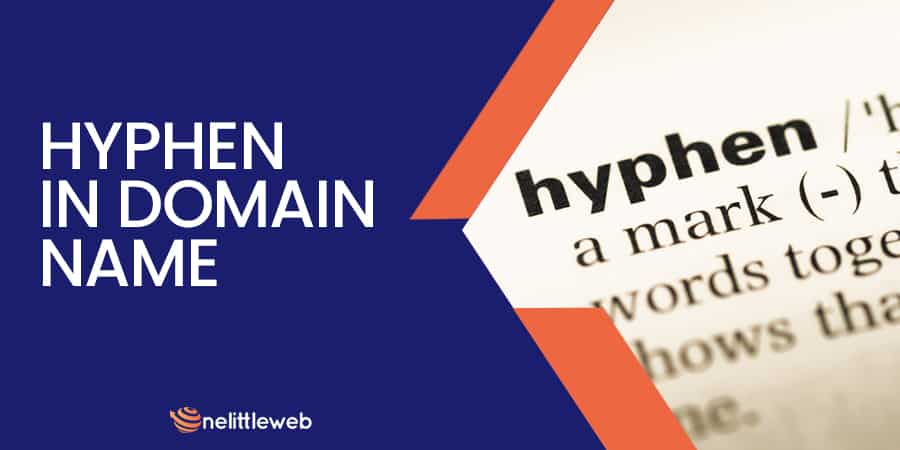To use or not to use hyphens in domain names – that’s a question plenty of website owners are plagued with. Let’s find out the answer!
Choosing a domain name for your website needs a lot of thought as it’s the first impression your potential visitors or customers get. Your website is a direct reflection of what your business or content is about.
Equally important is the contentious issue of adding or doing away with hyphens. Is adding hyphens in domain names a good or bad practice for SEO or your users? Read on to find out!
Do Hyphens in Domain Names Affect SEO?
Everything you do in digital marketing should tie back to SEO and higher rankings of your site. Therefore, the foremost question that comes to mind is whether hyphens in domain names affect SEO or not.
The simple answer is no. The above image is a screenshot from Matt Cutt’s blog. He used to work for Google and this blog dates way back to 2005. If there had been any update on the use of a hyphen in domain names after 2005, the whole world would have known by now.
Plus, we wouldn’t have come across hyphenated domain names like berkley-fishing.com. Just take the hyphen out from this domain name and it starts to look garbled – berkleyfishing.com.
By the way, berkley-fishing.com is found on the first page of Google SERP when you search for “fishing” – a short-tail, tough keyword to rank high on. I rest my case.
What Google warns us against is the use of underscores in URLs. Hyphens are preferred over underscores in URLs as it’s easier for the crawlers and users to decipher what your site contains.
Moreover, hyphens are the only character you can use to connote spacing in your domain name.
How To Choose A Domain Name For The Best User Experience
This part of the post will clarify how to choose a domain name and when it’s okay to use hyphens. There are certain criteria you should pay attention to when naming your website. Here goes!
1. Availability of the Desired Domain Name.
Suppose you want to start a website on a broad topic like traveling. First off, you have to buy the domain name. You will discover that names like www.travel.com are already taken.
So how do you make your domain name unique and reflective of your niche so that you can get your desired domain name?
You either settle for a domain name with a hyphen or look for travel synonyms and LSI keywords for travel. Examples are globetrotting, wanderlust, wanderer, planet, nomads, and others.
When you choose a domain name, make sure to register for both the hyphenated and the non-hyphenated versions.
What’s the deal here?
This will ensure that even if someone types in the non-hyphenated version, they will still be redirected to the hyphenated or the main version of your site.
The outcome?
Your site won’t lose out on traffic to other sites that sound and spell similar. Plus, freeloaders won’t be able to take advantage of your domain versions.
A word of caution: remember not to buy a domain name whose hyphenated or non-hyphenated version is already taken.
2. User-Friendliness of a Domain Name with Hyphens.
Next, we have to consider how easy and friendly it is to say and remember your domain name.
When there’s a hyphen or two in the domain name, it naturally gets a little less user-friendly. Why is that so?
We are so used to seeing domain names without hyphens, that we are automatically programmed to think of them without hyphens.
So, when you want to reach the Berkley Fishing site, you are most likely to type in www.berkleyfishing.com and this is going to take you to a different site.
Do the “radio test” with your domain name. Is it easy to say it out loud on the radio so that it gets a lot of word-of-mouth?
Suppose, you want an RJ to give a shout-out to your website. Would it be easy to say “www.haveyoursay.com” or “www dot have hyphen your hyphen say dot com”? You get the point!
And that’s why it’s recommended to avoid hyphens in the domain name. Moreover, hyphenated domain names are not easy to remember.
3. The Readability Factor in a Domain Name with Hyphens.
Elaborating on the last point, sometimes domain names with hyphens are used for the ease of reading and understanding the context, not reading out loud.
For example, if your site connects glassblowers to available jobs and you name your domain glassblowjobs.com, then it becomes totally inappropriate.
In these cases, you should use hyphens to make it clear to users what your site is about. Hence, www.glassblower-jobs.com is a domain name with a hyphen that makes sense when you’re reading it.
4. The Length of Domain Names with Hyphens.
When you choose a name for your domain, try to keep its length short so that it’s easily understandable.
Avoid using prepositions and pronouns like in, at, my, our, and others. When you use these extra words, you will be forced to use hyphens.
Just focus on one or two keywords at the most. The moment you add numbers and extra words, your domain name will need to be hyphenated. It will no longer be memorable.
What’s even worse is that it will look spammy and suspicious to the search engine bots. For example, www.mugsandmore.com is better than www.mugs-and-more.com.
So, the best thing is to limit your domain name to one hyphen, if at all.
5. The Monetary Value of Domain Names with Hyphens.
When we speak of the monetary worth of a domain name with hyphens, we can safely say that it’s lower than its non-hyphenated counterparts.
Therefore, if you’re thinking of selling your domain with hyphens, you will get a lower value for it. That’s why you should spend some time choosing a domain name if you want to sell it in the future.
When Should You Choose a Hyphen in Domain Names?
Besides making the context and content of a website clear, there are some situations where you should use hyphens in your domain name. These are:
- A local business domain name becomes much easier to read and relate to if you insert a hyphen.
For example, the city and business niche or the country and industry – www.providence-pies.com.
In addition, local businesses do a lot of other advertising on traditional media and it would be easier to read hyphenated domain names on billboards or cable TV scroll ads.
- When a word is naturally hyphenated, don’t bother to remove it. It would only make it look artificial.
Take the words “pet-friendly” or “low-budget” for instance. If you take away the hyphen from between these two words, it doesn’t look or sound the way it’s meant to be.
- When you think of domain names, you can’t confine yourself to only the English language. There are many languages where joining two words results in a word with a different meaning.
In such cases, it’s better to use hyphens in the domain name. Just make sure not to use more than one hyphen.
Final Words
Using hyphens in domain names can be good or bad depending on the context.
Although hyphens in domain names do not affect SEO, they might negatively affect readability, memorability, the resale value of the domain, and contextual understanding.
When combined words generate a completely different meaning or your local business domain makes better sense with a hyphen in it or you’re registering in another language, go ahead and use a hyphen.

Sujan Sarkar is one of the co-founders of OneLittleWeb. He leads the agency with over a decade of experience.
In 2018, he founded OneLittleWeb, driven by a vision to fill a void in the industry, providing top-quality SEO and backlink services.
His impressive track record includes crafting over 25,000 backlinks for more than 1100 clients, generating over 1 billion in traffic. This has earned him a significant presence in the SEO realm.
He successfully leads a dedicated team of 65+ SEO professionals, focused on helping SaaS and Enterprises scale their organic traffic.
Sujan firmly believes that the best backlinks are not paid for but earned through high-quality content and strategic relationships.
Every day, he works tirelessly to position your business at the forefront of your customers’ minds, striving to elevate your brand’s visibility and authority.
His daily inspiration centers around securing client features on top-tier publications like Forbes, MSN, BBC, Yahoo, and many more. He leverages the right SEO strategies to achieve this mission.



